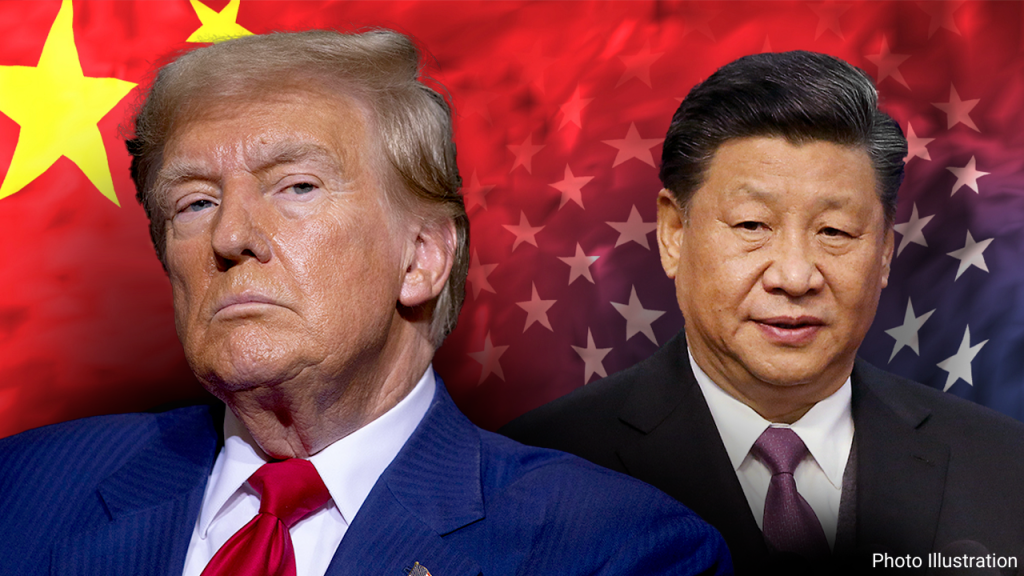Former Congresswoman Rodgers Joins USIEA to Advance U.S.-Israel Pharmaceutical Partnership
Cathy McMorris Rodgers has embarked on a new chapter in her career, transitioning from her congressional role to becoming a senior fellow at the U.S. Israel Education Association (USIEA). In a recent conversation with Fox News Digital, Rodgers shared her enthusiasm for this new position, where she’ll focus on strengthening pharmaceutical supply chains within the Abraham Accords region. “I’m really excited to be helping advise the U.S. Israel Education Association, both as a former member of Congress, but also someone who is very supportive and believes that the U.S.-Israel relationship must be a priority,” Rodgers explained. Her mission is clear: to advance “friendshoring” pharmaceutical supply chains to countries allied with the United States through the Abraham Accords, rather than continuing to rely heavily on China. As co-founder of the Abraham Accords Caucus, Rodgers brings valuable experience and understanding of the diplomatic breakthroughs achieved during the Trump administration, which successfully fostered unprecedented cooperation between Israel and several Arab nations.
The concept of “friendshoring” represents a strategic middle ground between complete domestic production and dependence on potentially adversarial nations for critical supplies. Rodgers highlighted the current vulnerability in America’s pharmaceutical supply chain, noting that China dominates the market for active pharmaceutical ingredients (APIs) and generic drugs. According to a July report from the Brookings Institution, Chinese APIs are found in approximately one-quarter of drug volume sold in the United States. This dependence raises significant national security concerns, especially given increasing geopolitical tensions. Rodgers sees the Abraham Accords framework as providing an ideal alternative, creating a network of trusted allies who can collaborate on pharmaceutical production while reducing reliance on China. “I understand how vulnerable we have become because our pharmaceutical supply chain, so many of them are controlled by China. So, this initiative aligns with some of the priorities that I had while I was serving in Congress,” she noted.
While President Trump’s administration has prioritized bringing manufacturing back to American soil, Rodgers recognizes the practical challenges involved, particularly for generic medications. “With the generics, which are 92% of the prescriptions in our nation, as well as the raw materials, the business reality is extremely difficult because of the cost of operation in the United States driven by regulations and labor costs,” Rodgers explained. This economic reality makes complete onshoring impractical for many pharmaceutical products. The Abraham Accords region—including Israel, the United Arab Emirates, and Bahrain—offers a compelling alternative. These countries are already investing significantly in research, development, and manufacturing capabilities. By leveraging these investments and the diplomatic groundwork laid by the Abraham Accords, the U.S. could secure its pharmaceutical supply chain through partnerships with friendly nations rather than competitors or adversaries.
The USIEA’s initiative builds upon the diplomatic success of the Abraham Accords, which were established under President Trump in 2020. Rodgers emphasized that while the Accords have successfully created government-to-government relationships, there is now an opportunity to deepen economic ties between these nations. This pharmaceutical collaboration represents a natural evolution of the Accords, moving from diplomatic recognition to concrete economic partnership in a critical sector. The initiative also aligns with the diversification goals of Abraham Accords nations, many of which are looking to expand beyond their traditional economic focus on energy and oil. “It’s an idea whose time has come,” Rodgers stated, “and it would serve both the purpose of ensuring our national security and preventing our dependence on foreign adversarial nations like China for these supply chains, but also building upon the Abraham Accords countries and the important relationship there.”
Despite ongoing tensions in the Middle East, including the conflict involving Hamas, Rodgers expressed confidence in the stability of the pharmaceutical initiative. She noted that other Abraham Accords nations have shown strong interest in collaborating with the United States on this project, seeing it as an opportunity to diversify their economies while strengthening ties with America. This confidence speaks to the resilience of the Abraham Accords framework, which has withstood significant regional challenges since its inception. The ongoing interest in economic collaboration, even amid broader tensions, suggests the durability of these diplomatic relationships and their potential to expand into new sectors like pharmaceuticals.
Although Rodgers has left Capitol Hill, she believes her former congressional colleagues have a crucial role to play in advancing this initiative. One of her top priorities is establishing a Food and Drug Administration (FDA) office in the Abraham Accords region, which would facilitate regulatory cooperation and streamline approval processes for pharmaceuticals produced there. She hopes this will be accomplished within the current year, creating an institutional foundation for long-term pharmaceutical collaboration. By combining her experience in Congress with her new role at the USIEA, Rodgers aims to create a more secure pharmaceutical supply chain that serves America’s national security interests while strengthening important diplomatic relationships in the Middle East. This initiative represents a pragmatic approach to addressing vulnerabilities in critical supply chains while building upon the diplomatic framework established through the Abraham Accords.


